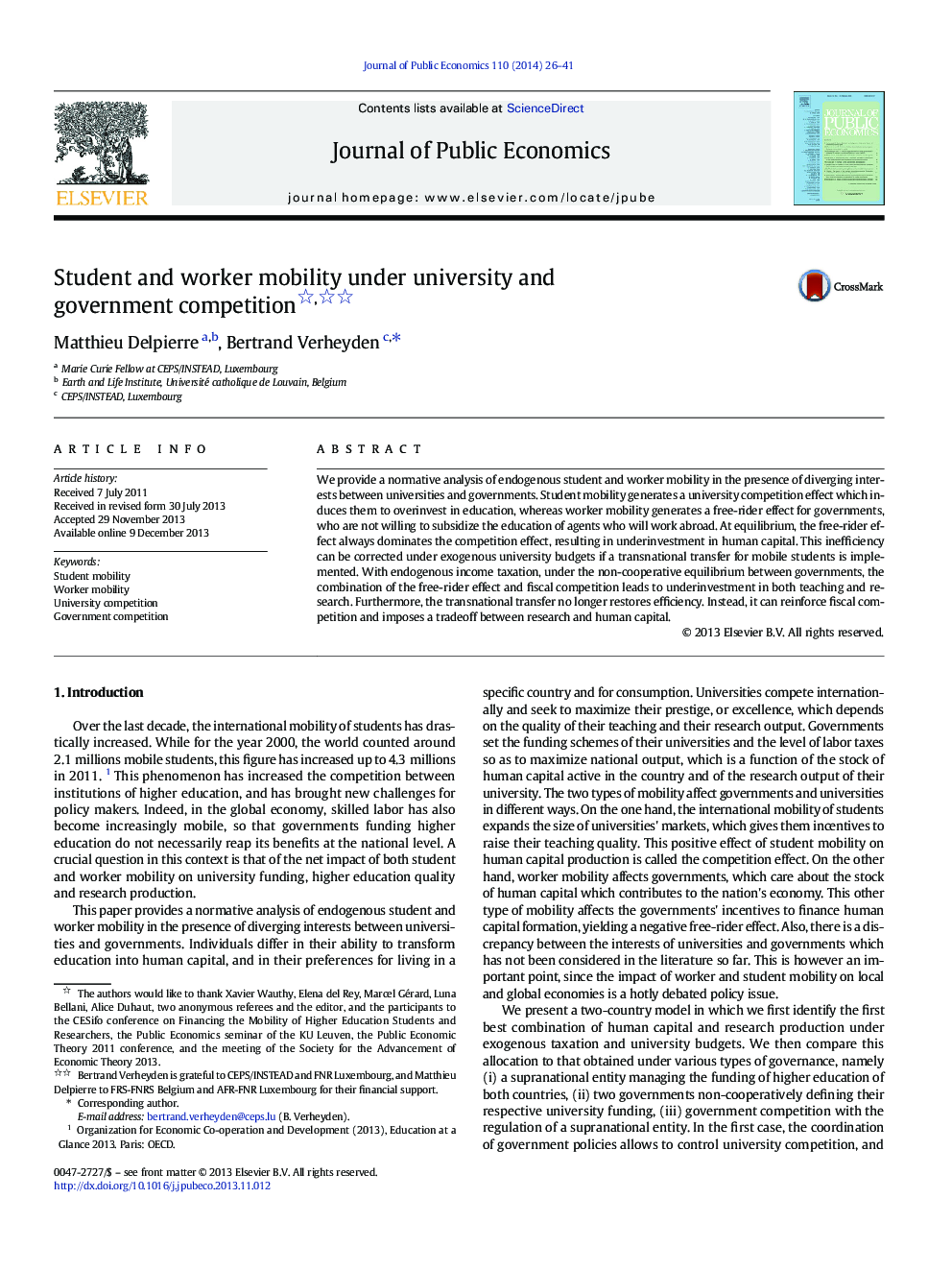| Article ID | Journal | Published Year | Pages | File Type |
|---|---|---|---|---|
| 7370416 | Journal of Public Economics | 2014 | 16 Pages |
Abstract
We provide a normative analysis of endogenous student and worker mobility in the presence of diverging interests between universities and governments. Student mobility generates a university competition effect which induces them to overinvest in education, whereas worker mobility generates a free-rider effect for governments, who are not willing to subsidize the education of agents who will work abroad. At equilibrium, the free-rider effect always dominates the competition effect, resulting in underinvestment in human capital. This inefficiency can be corrected under exogenous university budgets if a transnational transfer for mobile students is implemented. With endogenous income taxation, under the non-cooperative equilibrium between governments, the combination of the free-rider effect and fiscal competition leads to underinvestment in both teaching and research. Furthermore, the transnational transfer no longer restores efficiency. Instead, it can reinforce fiscal competition and imposes a tradeoff between research and human capital.
Keywords
Related Topics
Social Sciences and Humanities
Economics, Econometrics and Finance
Economics and Econometrics
Authors
Matthieu Delpierre, Bertrand Verheyden,
